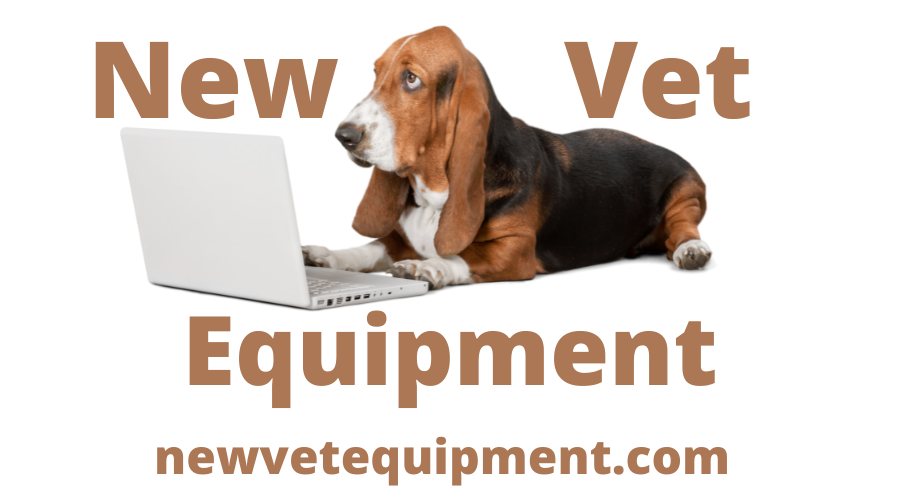Radiation Safety Tools Every Veterinary Clinic Needs
Protecting the Heart of Your Practice: Veterinary Radiation Safety Essentials
Running a busy veterinary practice means balancing patient care, client satisfaction, and staff safety—just the tip of the iceberg.
When your practice offers diagnostic imaging like X-rays or dental radiography, radiation safety becomes a non-negotiable priority. It protects your team and helps you stay compliant with regulations. The good news: with the right shielding, protocols, and monitoring tools, maintaining a safe, compliant environment is straightforward.
Why Radiation Safety Matters in Veterinary Practices
When you’re around imaging tools frequently, it’s easy to let the risks of intermittent exposure fade into the background. Diagnostic imaging enables faster, more accurate diagnoses—but repeated exposure to even low doses can accumulate over time. Protecting your staff (and yourself) from unnecessary exposure safeguards the people who make your practice possible and keeps you aligned with regulatory requirements.
Shielding: The First Line of Defense
Proper radiation shielding prevents stray radiation from traveling beyond its intended area. Most clinics install lead-lined walls, windows, and doors within imaging rooms.
The Physicist Shielding Report is invaluable. A qualified medical physicist evaluates your layout, workload, and imaging equipment to calculate required shielding location and thickness, ensuring you are both compliant and well protected.
Key benefits of a Physicist Shielding Report:
- Confirms your clinic meets applicable state and federal requirements.
- Reduces long-term liability by documenting protective measures.
- Provides peace of mind that staff, clients, and adjacent areas are protected.
Timing matters: commission the shielding report before installing new X-ray or CT equipment. Designing the room correctly from the start avoids costly retrofits and delays.
Monitoring Exposure: The Role of Dosimeter Badges
Shielding alone isn’t enough—verification is critical. Dosimeter badge services track the cumulative radiation dose your staff receives. Team members wear badges during work and submit them for regular analysis. The results confirm your protocols are effective and provide documentation for inspections.
Why dosimeter badges are essential:
- Early detection of overexposure so you can intervene quickly.
- Reliable documentation for regulatory compliance and audits.
- Visible commitment that reinforces a culture of safety.
Building a Culture of Safety in Your Practice
Radiation safety starts at the top. When owners and managers model best practices—wearing lead aprons and gloves, using thyroid collars, and properly wearing badges—it sends a clear message: this matters. Your team will mirror what they see.
Practical tips to strengthen safety culture:
- Post clear signage and positioning diagrams in imaging areas.
- Hold annual training refreshers—make them engaging or even gamified.
- Maintain a log of dosimeter readings and follow up on outliers.
- Schedule periodic reviews with a qualified medical physicist.
- Recognize and reward consistent compliance and good habits.
Regularly review your procedures and update them as guidelines or technologies evolve.
Make Safety Simple
Radiation safety isn’t just a compliance checkbox—it protects the heart of your practice: your people. With correct shielding, ongoing exposure monitoring, and consistent training, you’ll create a safe, efficient environment where staff and patients thrive.
Dosimeter Badges in your clinic: Key FAQs Answered
What are veterinary dosimeter badges?
Veterinary dosimeter badges are small devices worn by veterinary professionals to monitor their exposure to radiation in workplaces where diagnostic imaging procedures are performed on animals.
Why are veterinary dosimeter badges necessary?
Veterinary dosimeter badges are crucial for ensuring the safety of personnel who work with radiation-emitting equipment, helping to monitor exposure levels, and preventing potential health risks.
How much does a dosimeter badge cost?
The cost is $88.00 per person per year. The price includes quarterly replaced dosimeter badges and quarterly lab reports.
Do I need to return the badge whenever I get a new quarterly badge?
Yes, you must return all the dosimeter badges every quarter following our return process.
What happens if I don’t return a badge or if I don’t return it on time?
Returns must be on time to maintain the monitoring process which may lead to increased costs and regulatory issues. To avoid this, there is a $50 per badge, per quarter late fee. This ensures compliance, data accuracy, and the effective management of dosimetry programs, prioritizing worker safety.
How do veterinary dosimeter badges work?
These badges contain sensitive materials that change when exposed to radiation, allowing for measuring radiation exposure over time.
Who needs to wear veterinary dosimeter badges?
Anyone working with radiation-emitting equipment in veterinary settings, including veterinarians, technicians, and radiology staff, should wear dosimeter badges.
How often should veterinary dosimeter badges be worn?
Dosimeter badges should be worn whenever there is a possibility of radiation exposure, following workplace protocols and regulations.
How are veterinary dosimeter badges read and analyzed?
Badges are collected quarterly and sent to our specialists for analysis, with reports provided to the veterinary facility.
Are veterinary dosimeter badges reusable?
No, dosimeter badges are single-use devices and should be replaced after analysis.
Are veterinary dosimeter badges transferable?
No, each dosimeter badge is person-specific and nontransferable.
Are there regulations or guidelines for veterinary dosimeter badges?
Yes, our services are governed by The National Voluntary Laboratory Accreditation Program (NVLAP) which provides guidelines and regulations for the use of dosimeter badges to ensure safety.
How can I obtain veterinary dosimeter badges for my practice?
You can obtain dosimeter badges from https://form.jotform.com/221224959076157
Who should I contact for more information about veterinary dosimeter badges?
For further assistance or questions about veterinary dosimeter badges, please get in touch with our customer service team support@newvetequipment.com or call at 530-722-4977






